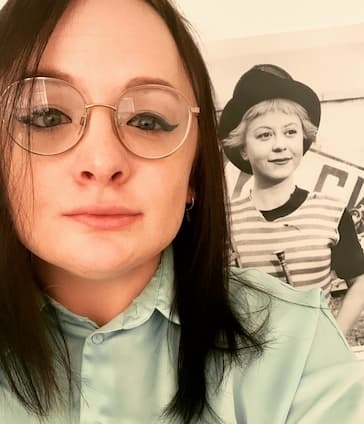
The fourth meeting of the Italian Research Seminar in Fall 2022 will host a research presentation by Lora Jury, PhD student in the Italian program at ND, titled:
Fellini, Film, and the Proliferation of Petroculture in Postwar Italy
Lora's research analyzes the correlation between the infiltration of global capitalism and the representation of feminized labor in the Italian cinema of the economic boom (circa. 1950-1963). Specifically, it focuses on the presence of Esso oil company branding frequently featured in the films of Federico Fellini and other Italian cinematic works produced during the 1950s and 1960s, which also center on depictions of feminized labor, including but not limited to the sale of sex. The juxtaposition between Esso branding and the visual representations of working women’s stories on screen emphasizes the discrepancy between the thriving financial success of global industry and the struggles of working-class Italian women, for whom the promises of the economic boom proved elusive. Yet the juxtaposition also demonstrates the substantial economic role played by women, upon whom Italian society is dependent as a form of both fiscal and cultural capital.
Lora Jury is a British film scholar and 4th year Ph.D. candidate in Italian Studies, with a double minor in Gender Studies and FTT (Film, Television and Theatre). They grew up in Wales and graduated from the University of Reading, with a BA in English Literature and Italian Studies, where they also completed a study abroad period at the Università degli Studi di Bergamo. Lora subsequently moved to the US to complete an MA in Italian Studies from the University of Oregon. Lora is a dedicated advocate for student wellbeing, international student support, and educational equity for underrepresented and first-generation university attendees. Lora was recently selected to serve as a Nanovic Institute Graduate Fellow during the 2022-23 academic year, and has also been awarded a prestigious Wolfsonian Fellowship to support their research on postcolonial Italian cinema, which will make it possible for them to conduct research at the Wolfsonian Library in Miami, Florida.
Their current dissertation project, on the exhibition of corporeal abnormality in the films of Federico Fellini, traces the director’s representation of the travelling performer back to its colonial roots, from the Berlin Conference (1884) and European New Imperialism, through 19th century European atavistic racial science, to the Human Zoos that Europeans, Italians among them, peddled during the fin-de-siecle Universal Expositions that took place in the continent’s largest and most metropolitan cities.